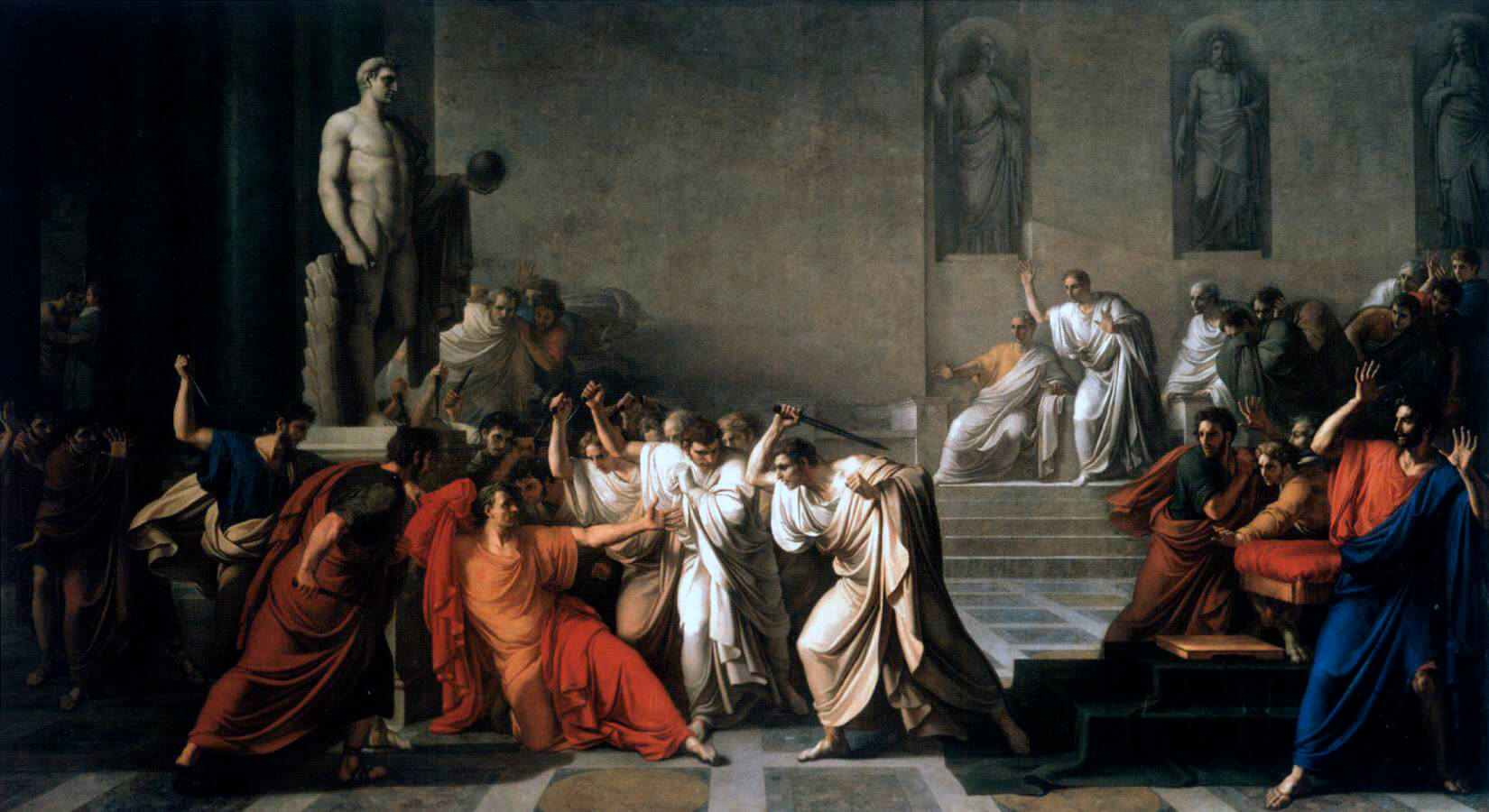What’s in a name? that which we call a rose
By any other name would smell as sweet;
While the context here has little to do with Sterner Stuff, let’s get a quick recap:
Scene: Romeo approaches yonder window through which Juliet appears.
The two lovers, from warring families, mourn that the feud keeps them from being together. Juliet laments that Romeo is not her enemy – his name is! Montague has no bearing on his character, yet makes a mess of their star-crossed love. He could have been called anything and still been her Romeo.

You’ve perhaps heard the phrase “made of sterner stuff”, and indeed, this is where the company name comes from. But where does that phrase come from? What exactly does it mean? Back to Shakespeare!
Julius Caesar
First, the historically factual parts – on the Ides of March in 44 BC, Marcus Junius Brutus the Younger (or simply Brutus) and several other Roman senators betrayed and assassinated Julius Caesar, fearing his recent appointment to dictator in perpetuity would spell doom for Rome.
William Shakespeare, responsible for Romeo and Juliet, wrote a play about the whole thing, most likely in 1599. It takes a lot of poetic license with the transpiring of events, but the play gave us a variety of memorable and oft-used quotes, one of which would go on to inspire Sterner Stuff Design.
The scene in question is shortly after Caesar’s death. Brutus approaches the pulpit and gives a speech in which he paints Caesar as tyrannical, hungry for power, and prepared to make slaves of the Roman people. Brutus makes specific use of the word “ambitious”, as though to a fault. Caesar’s ambition for power would have been to the detriment of Romans everywhere, as Brutus tells it. The people of Rome are nodding along—sounds plausible.
Marcus Antonius, or Marc Antony, follows Brutus to the pulpit to speak about Caesar, beginning (stop me if you’ve heard this) “Friends, Romans, countrymen, lend me your ears!” He then goes on to paint the many ways in which Caesar’s “ambition” is perhaps not as prominent as Brutus has made it out to be. All the while, he references Brutus’s honor in a sarcastic tone not lost on those there to listen. He says:
When that the poor have cried, Caesar hath wept;
Ambition should be made of sterner stuff.
Yet Brutus says he was ambitious,
And Brutus is an honorable man.
The gist here is that if Caesar were really so ambitious (heartless, in Brutus’s estimation), would he have been such a man of the people? On three occasions, Antony tried to “[present] him a kingly crown”, but all three times, Caesar refused. Furthermore, he closes, the same people he’s talking to, and the same people Brutus has convinced of Caesar’s tyranny, were awfully fond of Caesar considering how terrible he allegedly was. The way the story goes, Caesar didn’t even put up much of a fight when assassinated.
If Caesar had been so ambitious, he’d have been more ruthless. He’d have been less passionate, less a man of the people. A tougher, meaner leader. He’d have been made of sterner stuff.
In the same stroke, he alludes that Brutus actually has no honor. Rather, he is simply trying to paint himself in a better light at the expense of the late Caesar in what is certainly a move for power by he and other leaders of the Liberatores (those senators I mentioned). The Romans there to hear both speeches, previously convinced by Brutus, catch Antony’s drift and turn quickly back in favor of Caesar.
Back to the events as they transpired, Brutus and his cohorts were ultimately run out of Rome and Marc Antony and the Second Triumverant took power.
And thus, between two of the most well-known leaders and one of the most well-known playwrights in world history, a grand credo by which to develop bulletproof digital strategy and ambitious digital products was born. Hit us up today for a website made of Sterner Stuff.


Leave a Reply